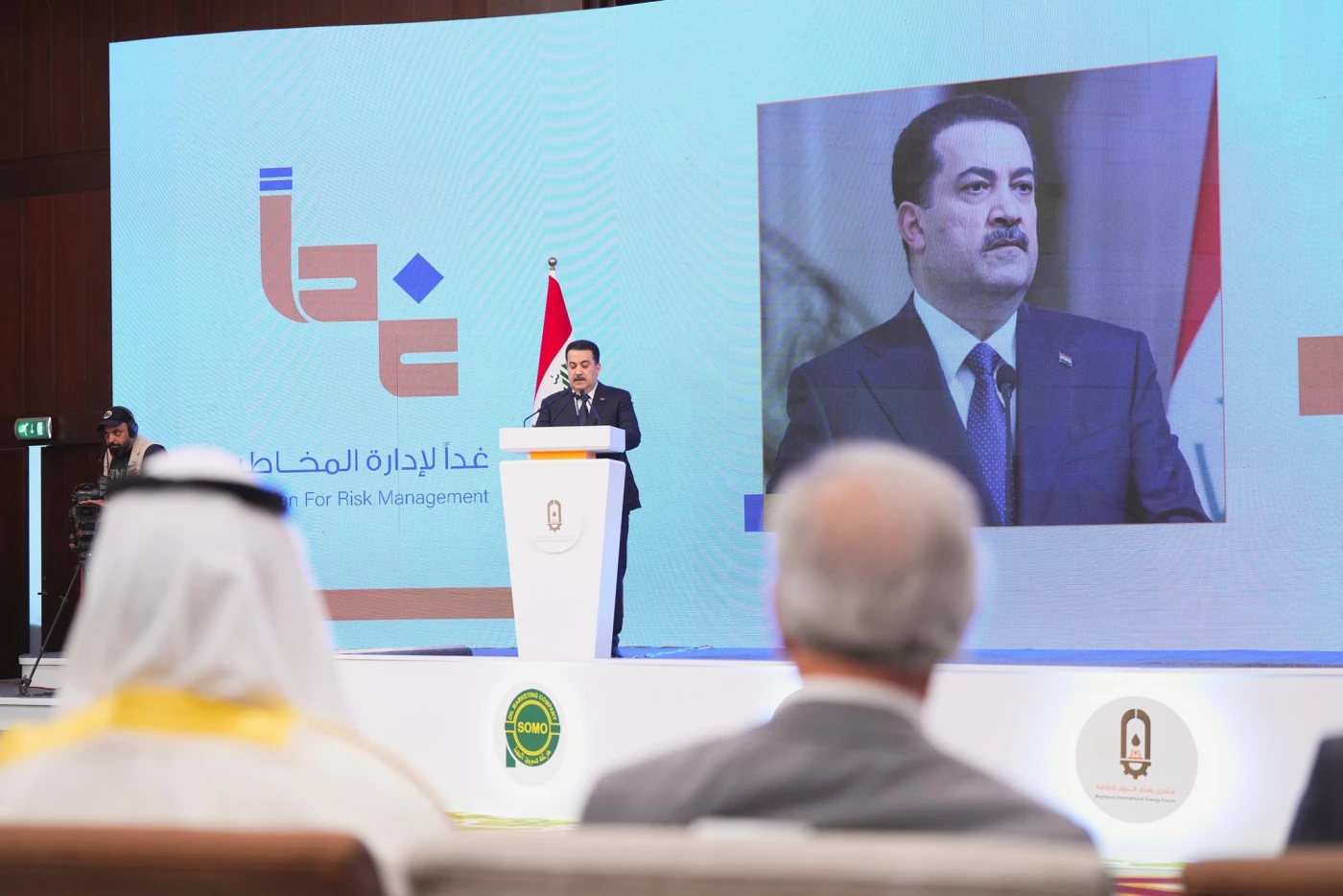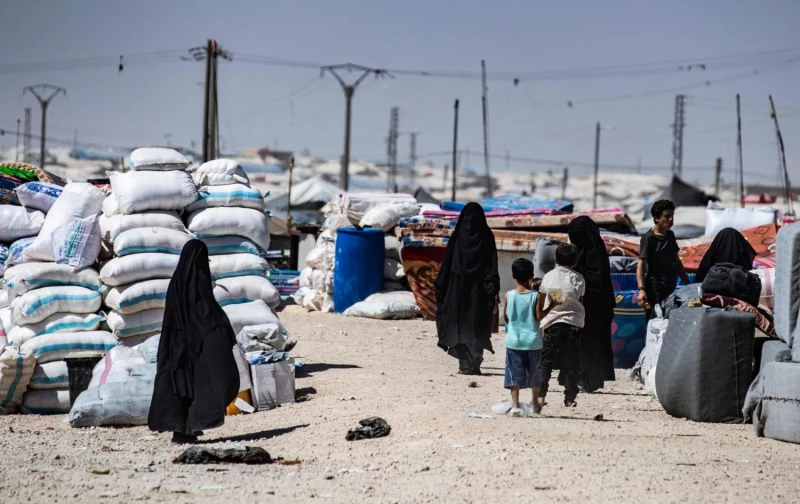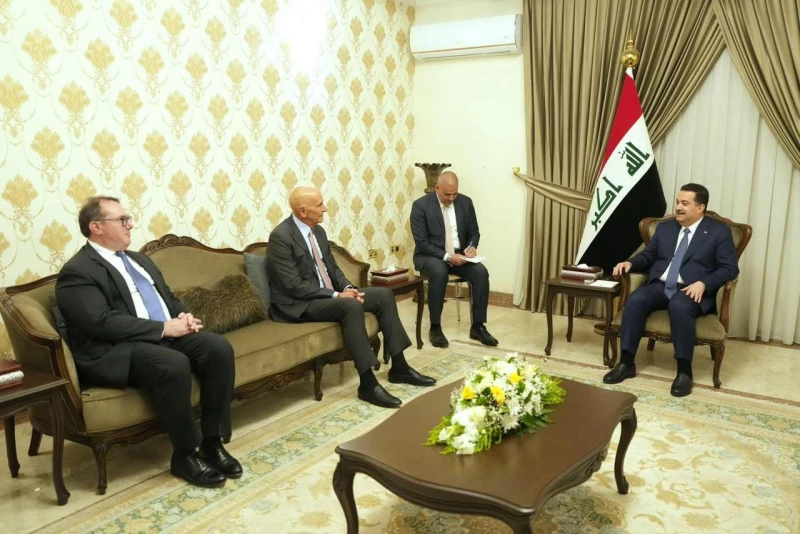ERBIL, Kurdistan Region of Iraq - Iraqi Prime Minister Mohammed Shia’ al-Sudani said that Baghdad has held talks to revive oil exports through Syria and extend the Basra-Haditha pipeline, while OPEC’s secretary-general confirmed global demand for oil is expected to rise.
The officials' remarks came Saturday at the opening of the Baghdad International Energy Forum 2025, organized by the Ghadan Risk Management Foundation in cooperation with Iraq’s oil ministry. Sudani attended alongside ministers, company leaders, and international energy organizations.
Energy ministers from Egypt, Jordan, Qatar, Iran, Turkey, and Libya joined the forum, along with leaders from OPEC, the Gas Exporting Countries Forum (GECF), Iraqi national institutions, and representatives of major global oil, gas, and renewable energy companies, including BP, TotalEnergies, Shell, Eni, Chevron, PetroChina, JAPEX, and Kuwait Energy.
Talks on Syrian route and new pipeline
In his speech, Sudani said the government held talks weeks ago to restart the Iraqi-Syrian export line. He also pointed to ending the burning of associated gas and making full use of 1.3 billion standard cubic feet.
He highlighted Iraq’s role in OPEC, saying the organization was founded in Baghdad in 1960 and that Iraq remains a main member. The premier asserted that Iraq’s proven reserves stand at 150 billion barrels.
“Iraqi oil will continue to feed global markets for more than 120 years, at the very least, even though our export share is not commensurate with the size of the reserve, production capacity, and population,” said Sudani, adding that Iraq is open to foreign companies seeking investment in oil and gas.
The prime minister also said Iraq has set a strategic goal to shift 40 percent of its total production into higher-value oil derivatives instead of crude by 2030. He said work on related projects has already begun.
He added that Iraq is moving ahead with building the Basra-Haditha pipeline, stretching 685 kilometers, to help diversify export outlets and increase transport flexibility.
Iraq as a global energy hub
Iraqi Oil Minister Hayan Abdul Ghani said Iraq has reduced thermal emissions by 2.5% and that holding the international forum in Baghdad shows global confidence in Iraq’s role in energy markets.
He said that Iraq aims to stabilize markets in ways that benefit both consumers and investors, and that Iraq has the reserves and geography to become a global hub for energy.
Abdul Ghani said the oil ministry signed a contract with a British company to develop four oil fields near Kirkuk. The minister repeated that Iraq had cut emissions by 2.5 percent while also working to expand export routes. He added that the government is preparing a “green building” project to link energy development with environmental needs.
“Our vision for the future is for Iraq to be a global center for energy,” Abdul Ghani said.
OPEC sees rising demand
OPEC Secretary-General Haitham al-Ghais praised Iraq and asserted that oil demand will continue to grow.
“Iraq is the cradle of civilizations and the beating heart of the region,” Ghais said in his remarks. “It is a great honor to represent OPEC in Baghdad, the birthplace of the organization that has played a key role in balancing oil markets since 1960.”
He said Iraq will remain a vital part of the international energy system and that OPEC remains committed to a sustainable energy future that balances development with environmental protection.
Ghais said OPEC’s presence in Baghdad carries historic meaning and reflects Iraq’s pioneering role in global energy policies. He said today’s challenges make cooperation among producing states more urgent.
He also stressed that the future of energy varies across time and place and that progress does not mean eliminating traditional resources. Abandoning oil and gas is “unrealistic” he said, calling oil “the lifeline of the world and the backbone of food supply chains.”
OPEC estimates show that oil demand will continue to rise, Ghais added.



 Facebook
Facebook
 LinkedIn
LinkedIn
 Telegram
Telegram
 X
X


